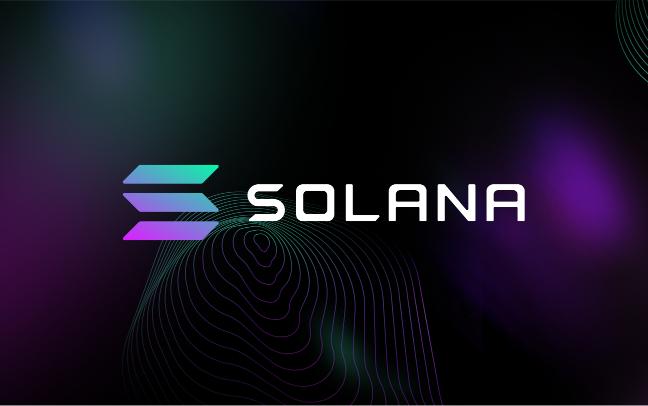Solana is the first high throughput blockchain that facilitates over 50,000 transactions per second.
The Solana infrastructure utilizes a proprietary Proof-of-History consensus mechanism. Consequently, allowing for a higher degree of scalability without losing decentralization and security.
Why Solana: The Problems It Solves
The Solana blockchain network is made to be fast and scalable. It has the capabilities of tackling transaction settlement, speed concerns, and bandwidth all through its trustless, decentralized design.
Scalability
The crypto market continues to face serious scalability issues. Blockchain’s early reliance on the Proof-of-Work consensus mechanism has led to congestion problems.
Top coins like Bitcoin and Ethereum are designed specifically for increased transaction fees as network traffic rises.
Solana’s superior technology allows for smoother efficient transactions across the network, allowing it to scale up without suffering from high latency. For example, Bitcoin can handle seven tps whereas Ethereum around 12, and according to developers, Solana is capable of 50k tps!
Benefits of Solana (SOL)
Censorship Resistance
Solana is a trustless and distributed blockchain that makes it ideal for day-to-day commerce. Thus, you can conduct global transactions faster and cheap, giving you value for money!
The best part about the network is that it has no centralized control. So, nothing is stopping or blocking your transactions like fiat currencies.
Delegated Staking
Want to secure a passive income without having to do much? Try staking SOL. This delegated blockchain is great for anyone looking for an extra source of money!
Staking protocols are gaining popularity in the market because they are easy to learn and give stable rewards compared to trading.
How Does Solana (SOL) Work?
Solana is revolutionizing blockchain by developing a network packed with proprietary systems. These work together to create a handy and reliable system for its users.
Consensus Mechanism
The Delegated-Proof of Stake (DPoS) network for Solana is different from other PoS networks. However, both mechanisms have Validators chosen based on their overall holdings in the network to process transactions.
Want to become a validator? Then you need more SOL in your wallet. This will increase your chances of being chosen as a validator.
As a validator, you can earn rewards by validating transactions. If you are not a validator, you can delegate your holdings to one of the Validators. The system allows everyone to secure the network, allowing you to decide which nodes deserve validation.
DPoS networks are faster than PoS blockchains. Bench tests have shown that Solana’s blockchain can approve blocks in as little as 1.6 seconds.
This is over three times faster than the Bitcoin network. Considering this fact, and how much time it takes for Bitcoin to do its task (10 minutes), we get why DPoS blockchains continue to gain momentum.
Proof of History (PoH)
Solana is an innovative new blockchain that lets you process transactions efficiently. Yet, with a higher throughput rate than other blockchains. Besides, it does this by creating efficiency through its PoH consensus algorithm. This also helps create historical records of events or transactions. So, making it easier for the system to track transactions and keep their ordering in check.
Turbine
Solana’s innovative Turbine protocol breaks data into smaller packets. Thus, increasing its overall capacity and settling transactions faster.
Gulf Stream
The Gulf Stream protocol allows for a faster leader switching. As a result, it reduces memory pressure on validators from unconfirmed transaction pools, and supports 50k TPS.
Sealevel
Solana’s hyper-parallelized transaction processing engine lets transactions run concurrently across GPUs and SSDs.
This allows for a more efficient run-time, making it easier to scale horizontally – resulting in an overall better experience.
Pipeline
Pipelining is a process where input data can be quickly validated and replicated across all the nodes in a network.
This mechanism allows transaction information to flow smoothly through different hardware responsible for it without delays or issues.
Cloudbreak
The Solana network will scale efficiently by using Cloudbreak. As the name suggests, this data structure is optimal for concurrent reads and writes across the network.
Archivers
Keeping in mind that data storage is a crucial part of the blockchain, storing the correct information is essential. Solana uses archivers for this purpose which are lightweight nodes periodically checked by other validators on-chain.
SOL
SOL is the native token of Solana. This cryptocurrency allows users to earn passive rewards through staking options on their network. And it’s hard-capped at 489 million coins.
Where to Buy Solana
Binance: Use Discount Code: EE59L0QP for 10% cashback of all trading fees. Best for Australia, Canada, Singapore, the UK and most of the world. USA can not us this platform.
Uphold: For residents of the UK and USA, this is one of the best options.
Gate, io: This exchange accepts USA residents.
How to Store Solana (SOL)
The developers of the project recommend using Trust Wallet to store your SOL. The Trust Wallet is a mobile wallet that’s available on both iOS and Android.
Coin98 is another recommended mobile storage option that simplifies your needs. The safest way to store coins is on a hardware wallet, of course!
The Ledger Nano S and the newer, more advanced model, the Nano X, both support SOL storage.
They also allow you to stake your coins directly from your hardware wallet for maximum security and rewards!
Final Take: Solana – A Technological Leap
Solana is an impressive blockchain network that surpasses other payment processors in terms of speed and functionality.
As more developers move to Solana, the team feels confident that they will continue to be a top contender as other blockchains suffer issues with scalability.





